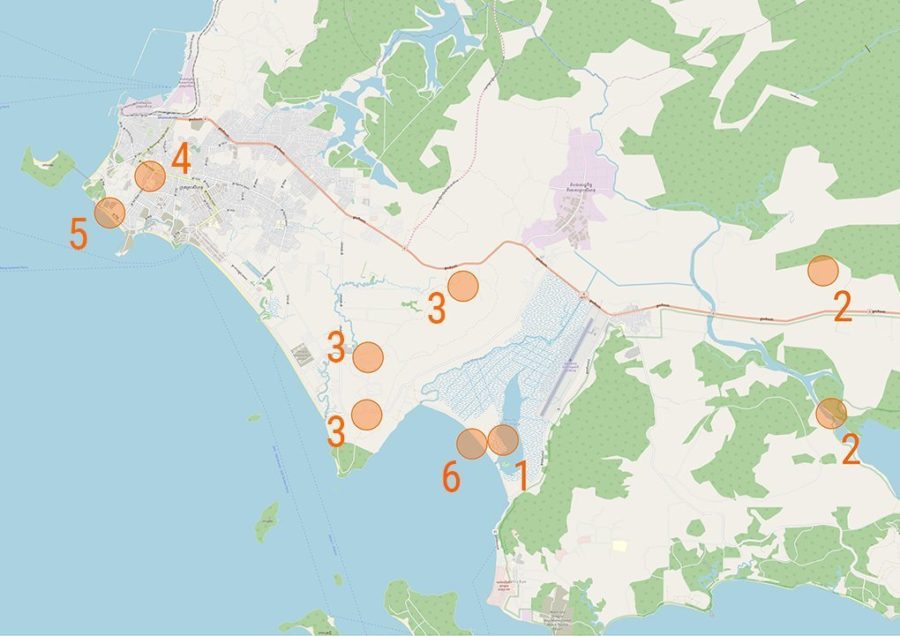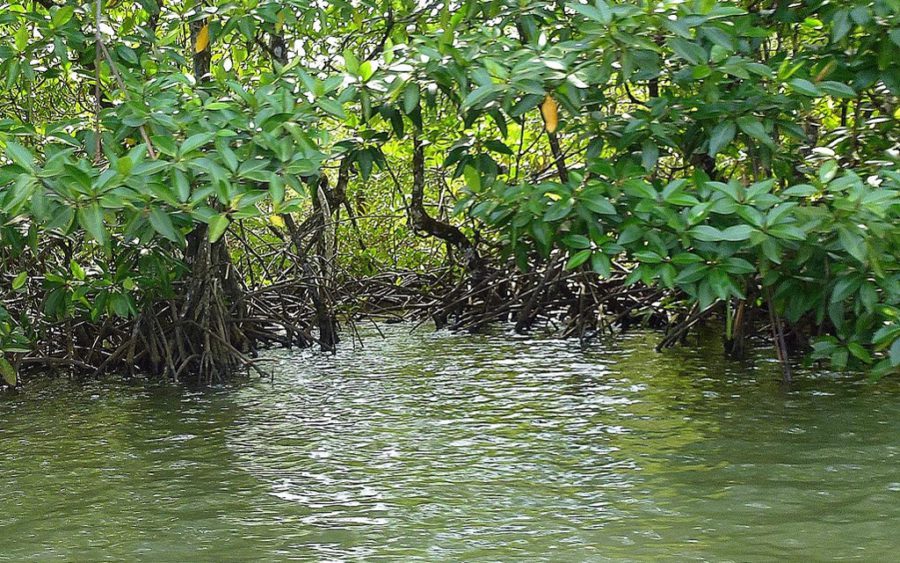The government has granted nearly 200 hectares of Ream National Park and flooded forest land that a local official said was disputed in Preah Sihanouk province’s Prey Nob district to companies and private individuals, to the surprise of two commune officials.

- After Lake Gifted to Powerful Couple, Current Residents Face Upheaval
- Tracts of National Park, Disputed Area Privatized
- Villages Emptied Amid an Extensive Web of Elites’ Landholdings
- Sihanoukville Administrative Offices Moved, Freeing Lucrative Land
- Public Beach, Lake Made Private at Government Orders
- Prince-Linked Firm Pours Sand Into 400 Hectares of Bay Without Study
On September 8, the government signed over a 110-hectare island within the Prek Toek Sap river in Ream National Park to China Phoenix Property for development, converting it to a “sustainable use” area. The document, seen by reporters on Wednesday, remarks that the concession in O’Oknha Heng commune is “very necessary.”
The phone number listed for China Phoenix Property in the Commerce Ministry’s business directory was disconnected, and the company has no web presence evident in English or Khmer.
A separate sub-decree dated one day later granted 85 hectares of land in the same commune’s Ou Ta Sek village as state private land, changing it from state forest as it was deemed in 2002. The document then granted this land to five individuals: Lam Him, Sok Sam Ol, Neang Lang, Cheng Piv and Nguon Chan Nal.
Reporters could not identify the five individuals named in the second sub-decree, though nearby land in the province has previously been granted to wealthy, powerful families, tycoons and land dealers.
Two commune officials said the companies and individuals were unknown to them.
Chuo Maroeun, O’Oknha Heng commune police chief, said about 100 families had lived on the 85 hectares in Ou Ta Sek village, but there had been several disputes in the past between current residents and powerful individuals, without elaborating on the conflict.
“There are nearly 100 families living along the road and there are flooded forests and empty areas where there are no people living on it,” he said.
O’Oknha Heng commune chief Keo Leng expressed frustration that this land had been given “very quick,” seemingly without input from the commune over the land’s ownership.
“How can they cut off the land, since we have not done [land ownership] documents,” he said. “They [higher officials] have not taken documents from the commune yet.”
He said he wasn’t familiar with the 110-hectare island conceded to China Phoenix, nor did he know the individuals named in the 85-hectare concession, north of the national park.
“Each one gets nearly 20 hectares individually,” he said of the 85-hectare grant. “You asked their names, but I have never known them or know where their lands are, so how can I know.”
“In this era, there is no empty land,” he said. “Even the mountain also has its owner.”
Government spokesperson Phay Siphan said he did not know specifically why part of O’Oknha Heng commune was granted to private individuals, or why the “very necessary” concession to China Phoenix Property was made. However he said it was generally part of the “palm leaves to package palm sugar” policy — granting land to private people in exchange for building roads and other infrastructure. He compared the initiative to the government’s latest fundraiser, collecting millions from about a dozen tycoons to eventually buy Covid-19 vaccines.
“Non-governmental organizations or civil society raise their feelings, but they do not know what’s necessary for the development and keeping a stable society,” he said. “This is the government’s principle to keep stability in our society to meet the very necessary development [needs] or needs of society.”
Siphan said that sub-decrees allocating land passed through an inter-ministerial procurement council, and officials discussed the environmental and social impacts with input from the Environment Ministry. He did not elaborate further, and Environment Ministry spokesperson Neth Pheaktra declined to comment.
“We do [reallocate land] with balance of nature and social demand,” Siphan said. “What we have done is not strange from other countries, especially the western countries. They have done like us too.”
Earlier this year, the government cut off more than 600 hectares of land from two tourism concessions inside Ream National Park and granted it to local individuals “who actually own the land,” according to a separate sub-decree.
Siphan said the Land Management Ministry and provincial officials could explain in more detail, but Land Ministry spokesperson Seng Lot declined to speak to reporters.
Kheang Phearum, the provincial spokesperson, said he did not want to elaborate on any of the sub-decrees signed by the national government.












